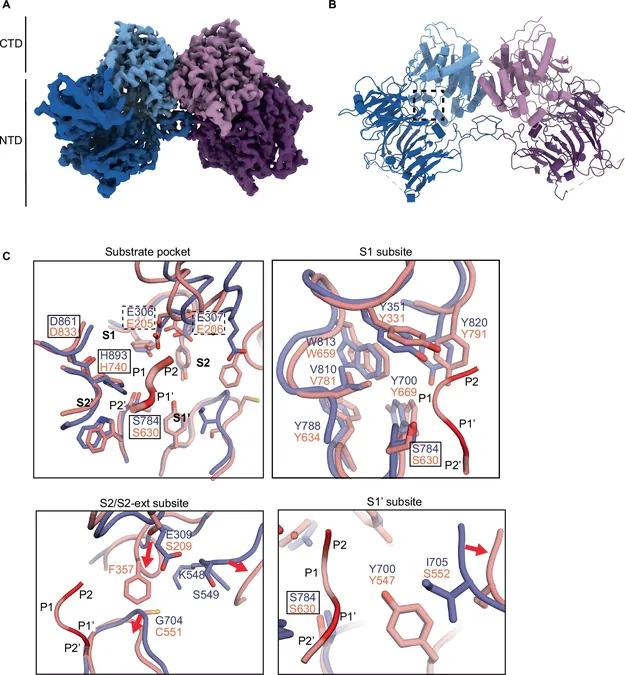
Breakthrough in Chronic Hepatitis B Treatment: The First Epigenetic Therapy Enters Clinical Trials
2024-11-19
Author: Rajesh
Introduction
Epigenic Therapeutics, a pioneering biotechnology company at the forefront of gene-modulation therapies, has made waves by announcing that it has received approval from New Zealand’s Medicines and Medical Devices Safety Authority (Medsafe) and The Health and Disability Ethics Committees (HDEC) to commence clinical trials for EPI-003.
This innovative liver-targeting antiviral therapy is poised to revolutionize the treatment of chronic hepatitis B (CHB), marking a significant advancement in the fight against this prevalent infectious disease.
EPI-003 Clinical Trials
EPI-003 is on track to become the first epigenetic therapy to undergo clinical trials aimed at addressing chronic HBV infections.
The pivotal first-in-human study will focus on evaluating the safety, tolerability, pharmacokinetics (PK), and pharmacodynamics (PD) of EPI-003 in patients undergoing nucleos(t)ide analogue treatment for chronic hepatitis B.
Clinical trial sites are set to be established in New Zealand, Australia, and Hong Kong.
The Challenge of Chronic Hepatitis B
Chronic hepatitis B poses severe health challenges.
If left untreated, this liver infection can progress to life-threatening conditions including cirrhosis, liver failure, and even hepatocellular carcinoma (HCC).
Conventional antiviral therapies have limited efficacy; they can merely suppress the virus, necessitating lifelong treatment without fully eradicating the disease.
Mechanism of Action of EPI-003
What sets EPI-003 apart is its unique mechanism of action.
This groundbreaking antiviral drug is administered via intravenous infusion and employs advanced epigenetic modification techniques to target the liver directly.
By modifying the genetic expression of HBV, EPI-003 aims to disrupt the persistent viral DNA that leads to continued infection and damage.
Preclinical Studies and Results
Preclinical studies demonstrate that EPI-003 can effectively inhibit the transcription of both covalently closed circular DNA (cccDNA) and integrated viral DNA.
Early research indicates that the therapy could result in a sustainable reduction in HBV surface antigen (HBsAg) and HBV DNA levels, offering hope for either a functional or complete cure for those suffering from chronic HBV infections.
Statements from Epigenic Therapeutics
Bob Zhang, CEO and Co-founder of Epigenic Therapeutics, expressed his enthusiasm, stating, “Receiving the first global CTA approval for EPI-003 is a landmark achievement for our company.
It underscores our commitment to pioneering innovative therapies that can transform the landscape of chronic hepatitis B treatment.
We are excited to collaborate with clinical investigators and expedite the development of EPI-003 to bring relief to CHB patients as soon as possible.”
Implications for Patients
The entry of EPI-003 into clinical trials is significant.
If successful, this therapy could shift the paradigm in treating chronic hepatitis B, moving beyond mere viral suppression to potentially offering a cure.
As the research progresses, patients and healthcare providers alike are eager to see how this novel approach can alter treatment strategies and enhance outcomes in the fight against hepatitis B.
This development is not just a triumph for Epigenic Therapeutics but represents a new horizon in the quest for effective treatments for chronic illnesses worldwide.
The implications of such breakthroughs are expansive, suggesting a brighter future for patients grappling with chronic viral infections and other diseases targeted by innovative gene modulation therapies.





 Brasil (PT)
Brasil (PT)
 Canada (EN)
Canada (EN)
 Chile (ES)
Chile (ES)
 España (ES)
España (ES)
 France (FR)
France (FR)
 Hong Kong (EN)
Hong Kong (EN)
 Italia (IT)
Italia (IT)
 日本 (JA)
日本 (JA)
 Magyarország (HU)
Magyarország (HU)
 Norge (NO)
Norge (NO)
 Polska (PL)
Polska (PL)
 Schweiz (DE)
Schweiz (DE)
 Singapore (EN)
Singapore (EN)
 Sverige (SV)
Sverige (SV)
 Suomi (FI)
Suomi (FI)
 Türkiye (TR)
Türkiye (TR)